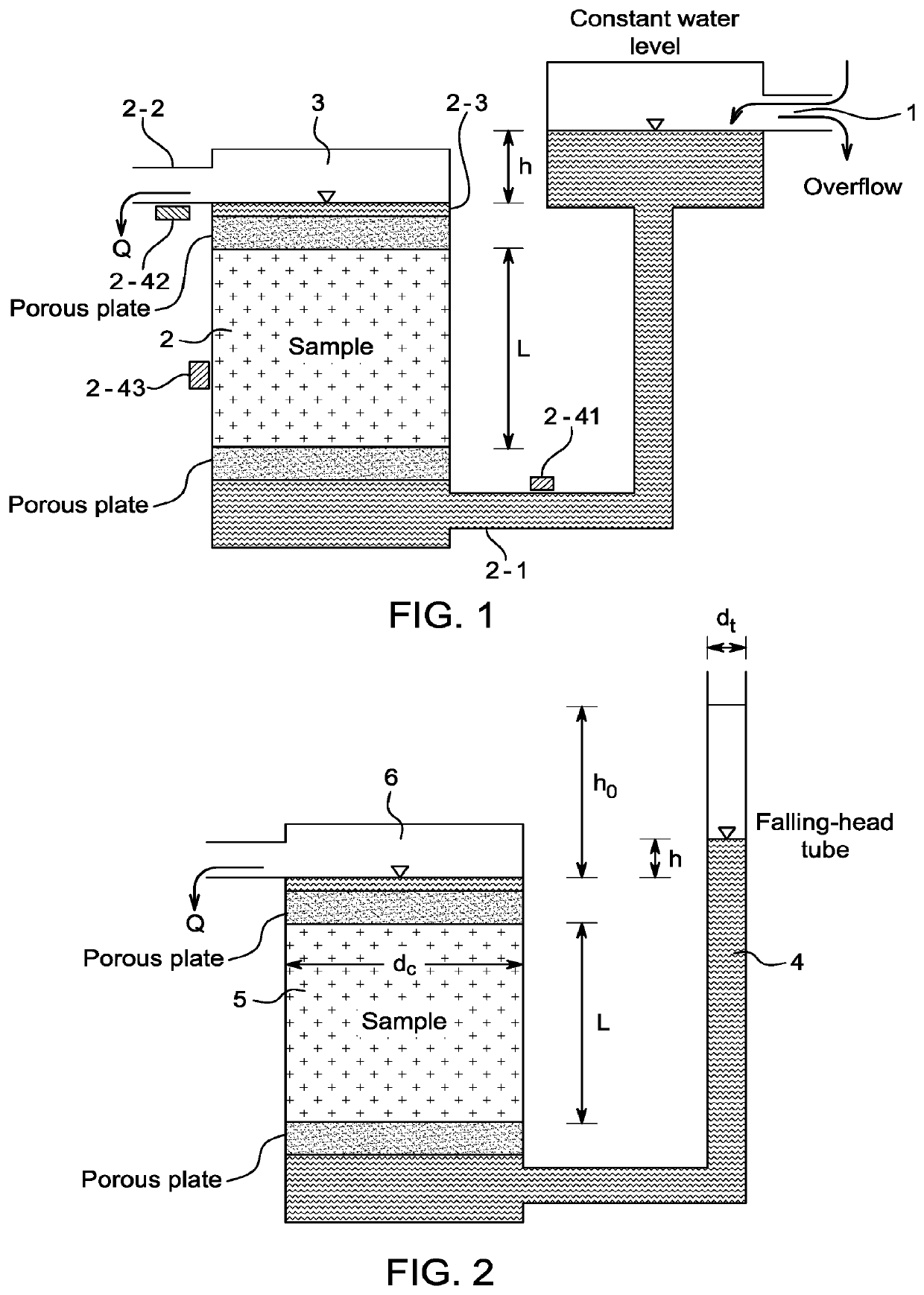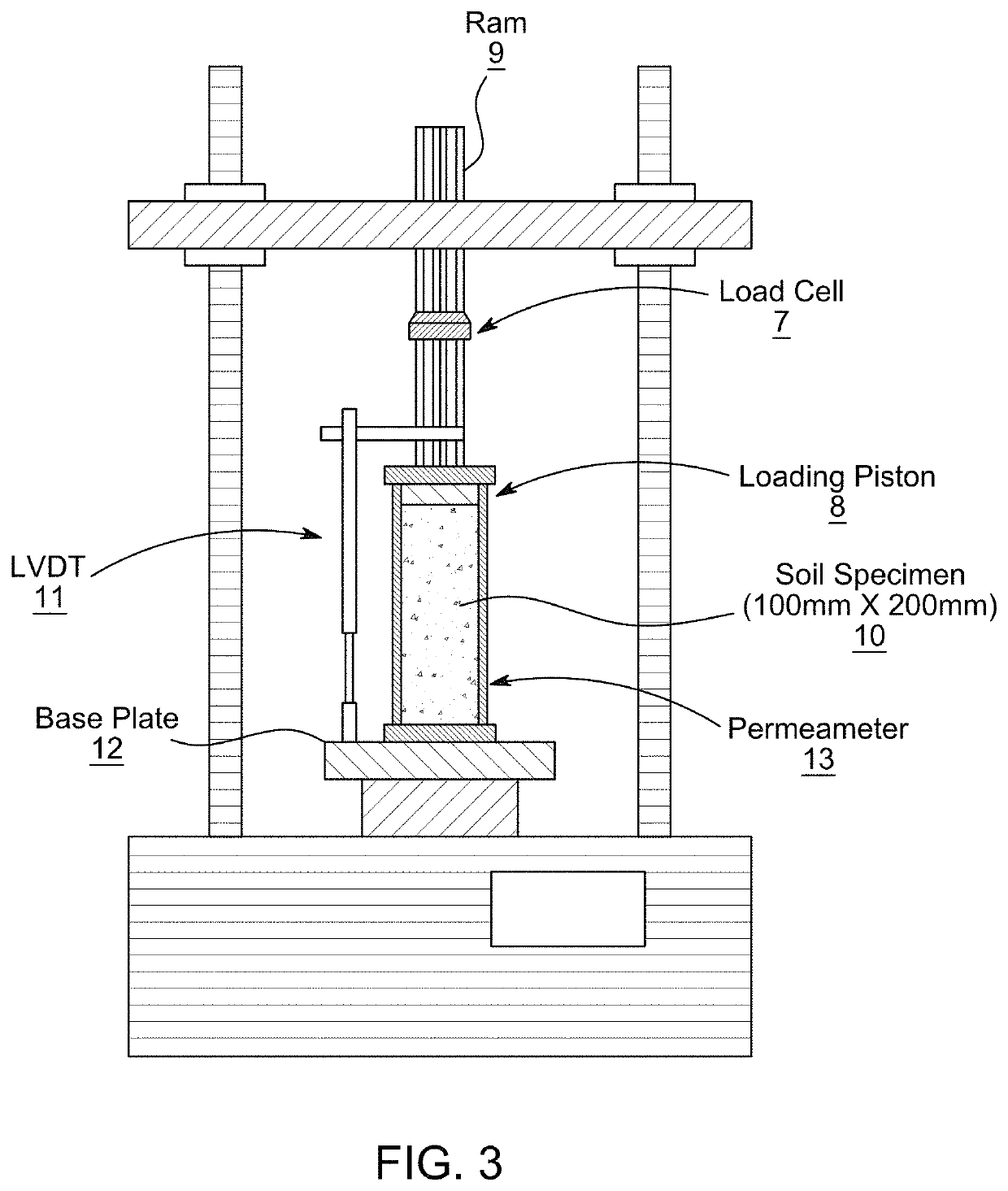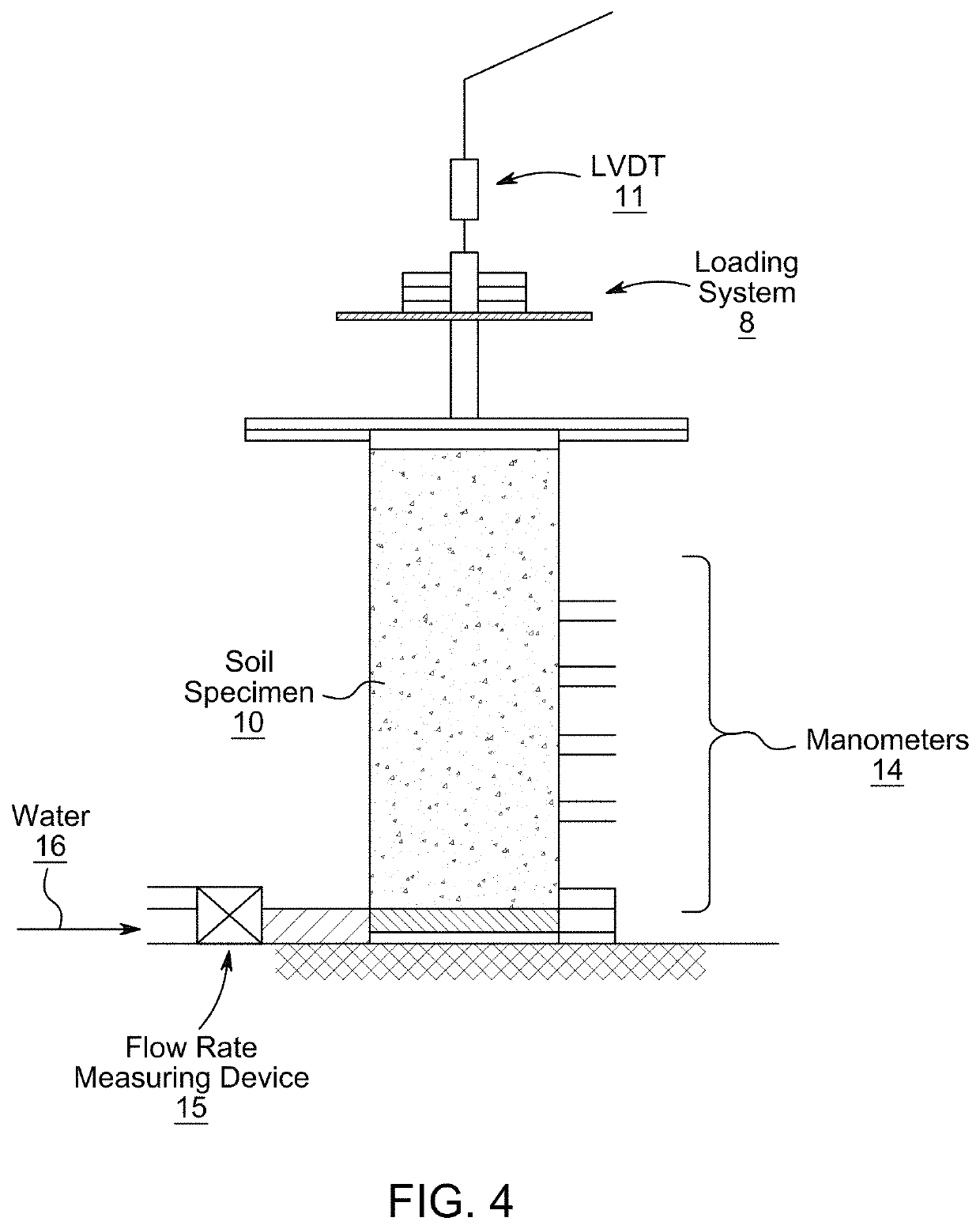Device and method for soil hydraulic permeability measurement
a technology of hydraulic permeability and measuring device, which is applied in the direction of measuring device, suspension and porous material analysis, instruments, etc., can solve the problems of deterioration of liner thickness, less desirable hydraulic conductivity, and contaminant transport in unsaturated areas
- Summary
- Abstract
- Description
- Claims
- Application Information
AI Technical Summary
Benefits of technology
Problems solved by technology
Method used
Image
Examples
example 1
on of Hydraulic Transmissivity
[0162]Aquifer transmissivity is a useful parameter in groundwater flow modeling. Transmissivity includes the aquifer hydraulic conductivity which is a property of the aquifer. Hydraulic conductivity is a function of the fluid moving through the porous medium (i.e. aquifer, formation) and the permeability of the formation. In addition to hydraulic conductivity, transmissivity is a function of aquifer thickness (FIG. 17). In unconfined aquifers, the aquifer thickness is a height h, that is the water depth above an impermeable boundary. If a well is pumped, h can vary with time and location. In confined aquifers, the aquifer thickness b is independent of any effects of pumping since the aquifer is bound between two impermeable layers. The transmissivity values are:
Tb=Kb (21)
Th=Kh (22)
Where:
b=Confined aquifer thickness (m).
h=Height of water table in unconfined aquifer (m).
K=Aquifer hydraulic conductivity (m / s).
T=Aquifer transmissivity (m2 / s).
[0163]From th...
example 2
on of Hydraulic Resistance
[0166]Vertical water transfer is equally important to the lateral. The resistance to vertical flow of an individual soil layer with a saturated thickness di and vertical hydraulic conductivity Kiv is:
Ri=di / Kiv (23)
[0167]The resistances combine for the subsequent layers, and the apparent vertical conductivity of the aquifer is:
Kva=Dt / (Σdi / Ki) (24)
Where Dt is the total thickness of the aquifer.
[0168]The vertical conductivity of the total is limited by the resistances of poorly permeable layers.
[0169]The values of vertical permeability find application, according to (24) in the calculation of the amount of water that can be absorbed by the soil in the aquifer and later transferred away by the lateral transmissivity mechanism, leak outside of the aquifer or diffuse back to the surface and evaporate. Complete saturation of an aquifer means that there is an uninterrupted column of water level reaching the surface and the hydrostatic pressure of this column bala...
example 3
on of Aquifer Capacity
[0170]Storativity or the storage coefficient is the volume of water released from storage per unit decline in hydraulic head in the aquifer, per unit area of the aquifer. Storativity is a dimensionless quantity and is always greater than 0.
[0171]S=(dVwdh)(1A)=Ssb+Sy(25)
Where S is storativity;
Vw—is the volume of water released from storage ([m3]); h—is the hydraulic head ([m]); Ss—is the specific storage; Sy—is the specific yield; b is the thickness of aquifer; A is the area ([m2]).
[0172]The specific storage multiplied by the thickness of the confined component of the aquifer produces the Ss b components, while the contribution of the unconfined layers is Sy. The equation (25) can be understood thus: the more capacity is in the layer, the less its intensive parameter (h or hydrostatic head) is impacted by withdrawing a fixed mass of water (for example in a neighboring well).
[0173]The inventive apparatus is applicable for measuring storativity, which in tur...
PUM
 Login to View More
Login to View More Abstract
Description
Claims
Application Information
 Login to View More
Login to View More - R&D
- Intellectual Property
- Life Sciences
- Materials
- Tech Scout
- Unparalleled Data Quality
- Higher Quality Content
- 60% Fewer Hallucinations
Browse by: Latest US Patents, China's latest patents, Technical Efficacy Thesaurus, Application Domain, Technology Topic, Popular Technical Reports.
© 2025 PatSnap. All rights reserved.Legal|Privacy policy|Modern Slavery Act Transparency Statement|Sitemap|About US| Contact US: help@patsnap.com



